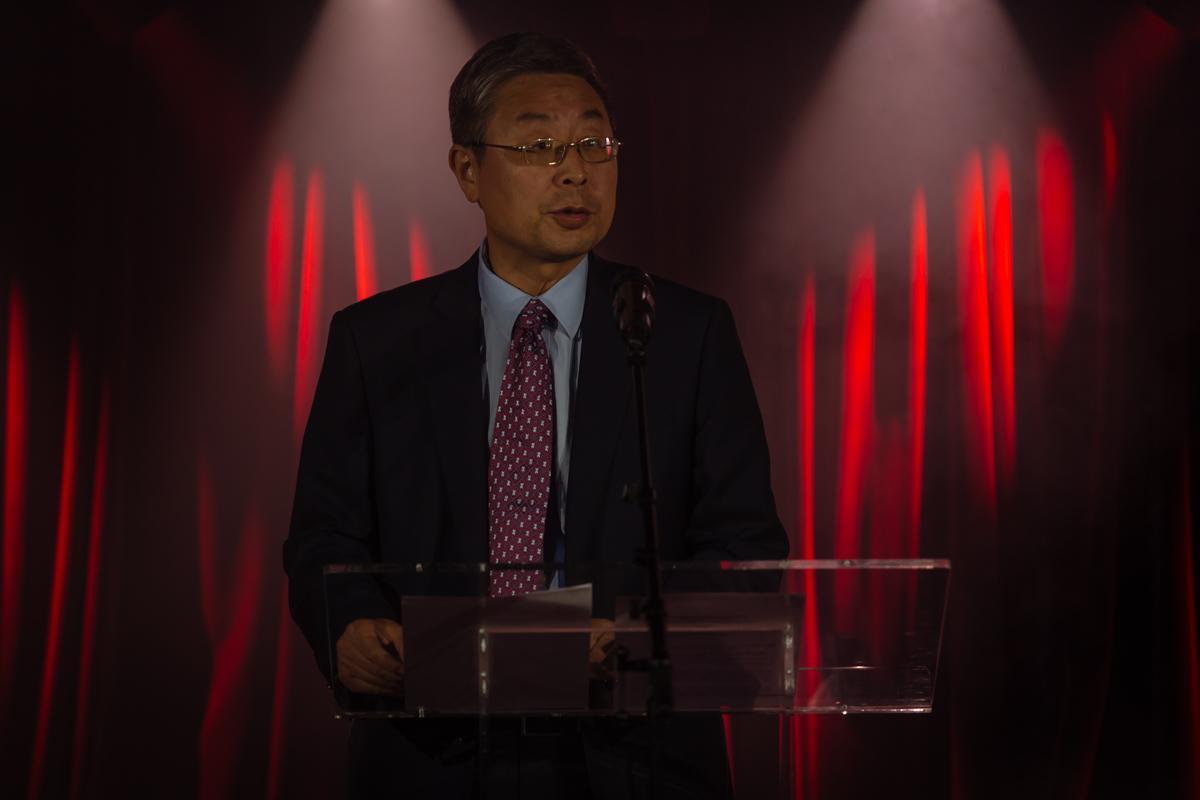How China is helping to win the great ivory war
Ahead of the fourth Illegal Wildlife Trade conference in London, Minister Ma Hui delivers a powerful speech about China leading the fight to save elephants

In a fortnight, London will host this year’s Illegal Wildlife Trade (IWT) conference, bringing together global leaders to discuss eradicating the trade in illegal animal parts. Ahead of the landmark conference, Minister Ma Hui of the Chinese Embassy visited the Capital to make an impassioned speech about how to finally end the ivory war and protect one the planet’s most iconic species from the threat of extinction.
Minister Ma said “We must all work together to find a comprehensive solution to this problem. The efforts of a few countries are not enough to curb the illegal trade of ivory. All the relevant countries must all improve their legal systems and step up law enforcement in order to break all the links in the chain.”
Minister Ma gave the talk at a debate hosted by the international conservation charity Space for Giants at The Arts Club, Mayfair. Chaired by Dr Max Graham, Founder and CEO of Space for Giants, the event served as a warm-up appetiser for some of the key issues to be discussed at the IWT conference, 11 - 12 October, which Minister Ma said has China’s full support.
“China looks forward to further contributing to the IWT conference’s success, but we still have a long and arduous way to go before winning this war across the world,” he said.
At the inaugural IWT in London in 2014 China and 45 other countries signed a declaration to protect wildlife. Since then, China has emerged as an unexpected frontrunner in the fight to clamp down on the trade in illegal animal parts, especially ivory.
Soon after the third IWT conference held in Hanoi in 2016, China pledged to ban all domestic ivory trade and processing by the end of 2017. This surprise move stunned many. The country has long claimed that ivory carving is an integral part of China’s cultural history, stretching back over 3,000 years.
The ban was hailed by activists and charities as a game changer for Africa’s elephants, and it has proved to be a hugely positive step. Minister Ma said that since implementing the policy the number of ivory smuggler cases have dropped by 80%., and crucially the value of ivory has dropped significantly.
“China has also worked with the international community and increased the punishments for wildlife criminals,” said Minister Ma. “We have taken a zero tolerance attitude towards crimes of illegal hunting or trafficking of wildlife and wildlife products. And in China 34 ivory processing units and 143 shops trading venues have been closed down. As a result of all these measures the illegal trade has been decreasing in China for three consecutive years.
However, Minister Ma recognised this is no time for complacency. Elephants still face a bleak future, a situation that can only be reversed with help from increased and unified international measures.
“We must address both the symptoms and causes,” Minister Ma said. “Social media must be used to raise awareness especially among the younger generations, so the idea of protecting elephants and opposing the ivory trade will take deep roots in people’s hearts.”
The importance of educating younger generations was echoed by Grace Ge Gabriel, Asia Regional Director at the International Fund for Animal Welfare. She spoke after Minister Ma at the London event, and revealed surprising research about younger people – even supposedly ‘woke’ millennials - buying novelty ivory trinkets, such as bracelets.
Ensuring the young engage with issues around the illegal trade of wildlife is a key aim of the fourth IWT conference in two weeks. This will be the second of four iterations of the conference that London has hosted, and there is a huge sense of expectations for what might be pledged.
No one country can save elephants alone. What is needed now is bold and meaningful action by every nation, following China’s lead to help to solve an urgent conservation crisis.
For more information on the IWT conference click here. Follow #endwildlifecrime or #IWTconf
Join our commenting forum
Join thought-provoking conversations, follow other Independent readers and see their replies
Comments
Bookmark popover
Removed from bookmarks